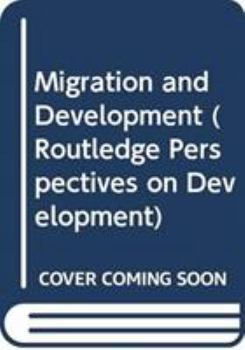Migration and Development
In the last decade there has been an explosion of interest in the relationship between migration and development. In particular, there has been much excitement about the potential for migration to make a positive contribution to development and concern about ensuring that development reduces the need for people to migrate. The ensuing 'buzz' has created much discussion but it is often surrounded by conceptual confusion and simplistic analyses. This volume will introduce the reader to the debates about migration and development and provide a critical overview drawing on insights from case studies of particularly migration practices, development interventions and policy initiatives from different regions of the world.
The text begins by situating the recent burst of interest in broader historical currents of development discourse, examining some of the intellectual and political factors that have brought it to the surface now. It introduces the main elements of migration theory as it has been applied in the developing regions of the world, before presenting the theories proposing causal relationships between migration and development. The book will then explore these interactions in more detail by focusing on some of the key concepts that underpin much of the discussion, in particular remittances, diasporas and human capital. A central argument of the book will be that migration must be seen as intimately related to development and change rather than as a symptom of development failure. An exception is perhaps provided with the movement of refugees and other forced migrants and a chapter will examine the extent to which it is helpful to distinguish forced and voluntary migration in relation to development. The final section will critically review how the migration and development discourse has been adopted by policy makers in a range of initiatives. The book will conclude by reflecting on how the development and migration debate remains incoherent and contradictory in many respects. It will argue that migration brings a challenge to sedentary notion of development that has yet to be taken seriously by development scholars.
Each chapter will include case studies from different parts of the world to illustrate the points being made. In contrast to much of the current literature on migration and development, each chapter will consider both internal and international migration





